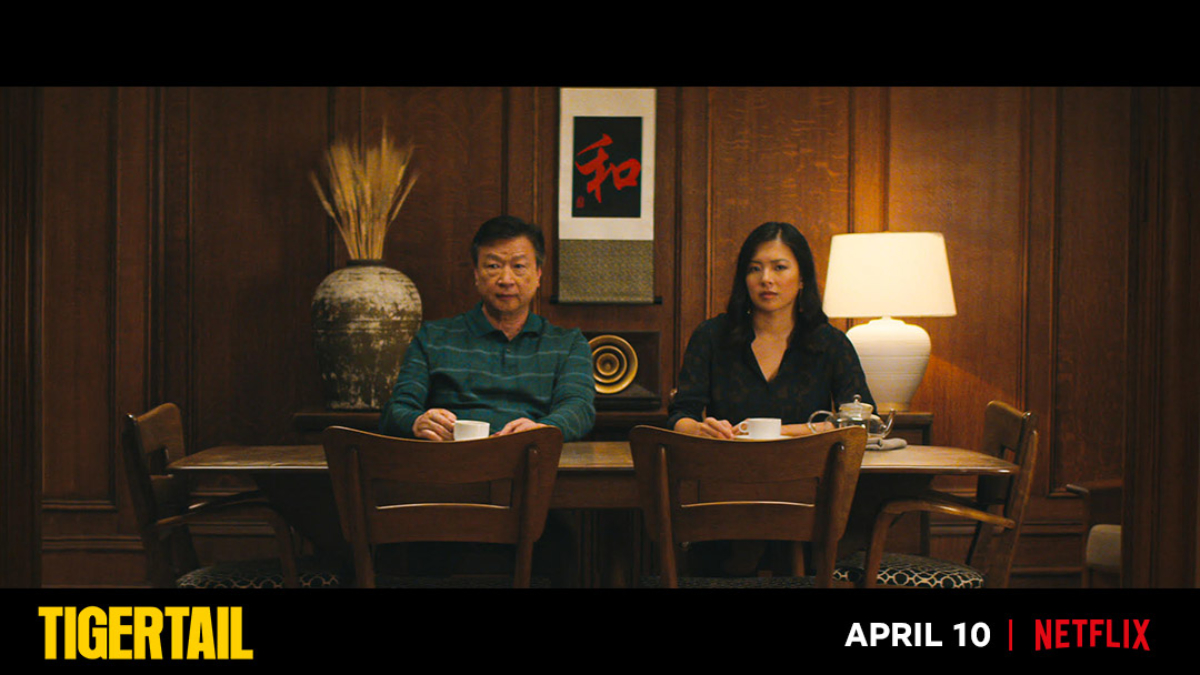Written By: Demi Guo
Quietly enrapturing, “Tigertail” does not mince on the small details, down to the meaning of its title. Alan Yang’s newest contribution to Netflix is the age-old story of an immigrant father and the dreams he shed on his path to a new life.
The main theme is relevant, but tired — what Asian American film hasn’t put that relationship between immigrant parents and their estranged children front and center? “Tigertail” barely lifts a finger — it skimps on special effects, and never plays its soundtrack above a whisper — and yet it manages to pry apart the bare essentials that breathe life back into this topic.
In that, it uses a series of interspliced flashbacks and the modern-day storyline to show one Ping-Jui’s (Tzi Ma) journey from a field in Taiwan, to the streets of New York, to an empty house. Along the way, he makes sacrifices for his family — at a cost. He is estranged from his daughter, Angela (Christine Ko).
Ma returns to the screen as Ping-Jui in order to emotionally inflict us with his subtle expressions, while his younger selves (Lee Hong-chi, young adult, Yang Zhi-hao, child) roam Taiwan so quickly it makes my elderly, twenty-something-year-old knees hurt. Angela, on the other hand, is a mirror reflection of second-generation Asian Americans, perfectionist pains and economic burden included.
It would be so, so easy to pitch those two against one another: Ping-Jui is an emotionally unavailable father, and Angela is an ungrateful child who cannot appreciate all the opportunity being raised in America gave her. It would be so, so easy for the film’s narrative to pick a side in this intergenerational conflict.
It doesn’t.
Every character gets a say in this film.
This allows us to explore Ping-Jui’s decisions throughout his life, through his eyes, but also how it affects those around him. The film is empathy at its purest — presented as close to true objectivity as it can, and not at anyone else’s expense. Before you watch, I’ll give you a piece of advice — to focus on the record, the keyboard and the tables. My favorite is the keyboard.
The props are not the only thing that make this film especially visual. The flashbacks are almost dreamy. They were shot on 16mm film, giving a grainy, raw look at Taiwan’s night life and how the young Ping-Jui resolves to conquer it. When he moves to New York — which seems to have been shot in Harlem or the Heights — it feels like looking at a film from the ‘80s or ‘90s.
As a born-and-bred Queens kid, I snort at most forms of media that try and fail to capture the spirit of the city (I bite my thumb, “The Mortal Instruments”). However, “Tigertail” captures it. The first time I saw the inside of the apartments they filmed in, I choked — I and everyone else in New York lived there at some point. Hell, we still do; New York apartments are old, old enough to be in these flashbacks. It’s what the American dream looks like, how the same damn street looks on different days. Can I get a “yes” for historical accuracy?
If you want pretty scenery through mundane places, this is it. If you like being ping-ponged between emotional moments, silent shots of faces that speak volumes and slice-of-life moments that make you wish you could de-age into a teen, this is it.
Each flashback and modern-day chapter is seamlessly fit into each other; each character leaves you satisfied. There are pockets of detail everywhere: Which character decides to speak Taiwanese Hakka, Mandarin, or English? What has Ma done in this new environment that is so glaringly symbolic of what he wants in life? Why is Jianyu’s “friend” from “The Good Place” here — ? Oh, so that’s Eric.
This film is a smooth watch. I would watch it on a quiet evening, ready to admire some visuals during this fine Quarantine. Much like Ma’s acting, it’s about the little things that make one big thing.
In case you missed it, “Tigertail” is available to stream on Netflix.

